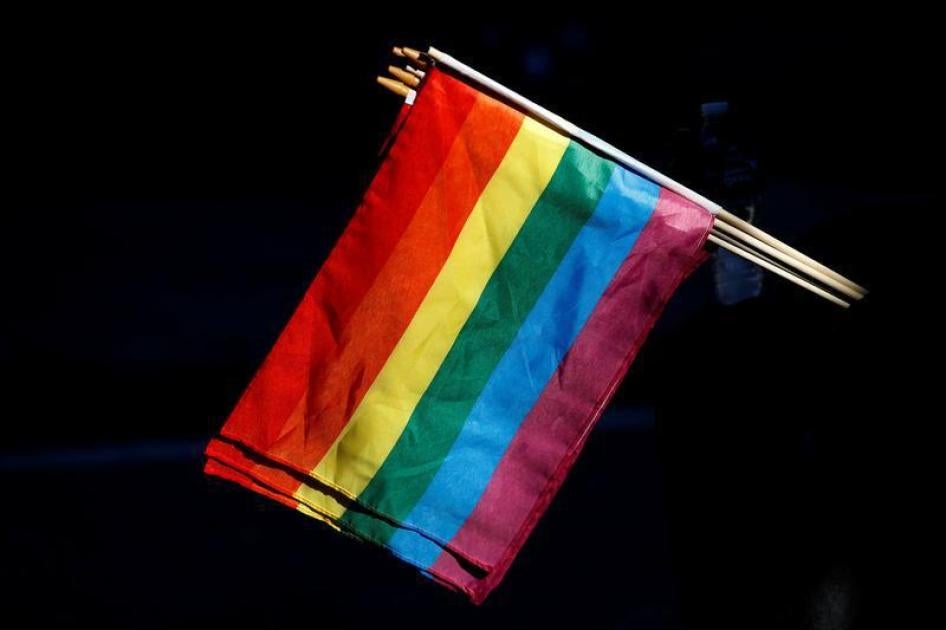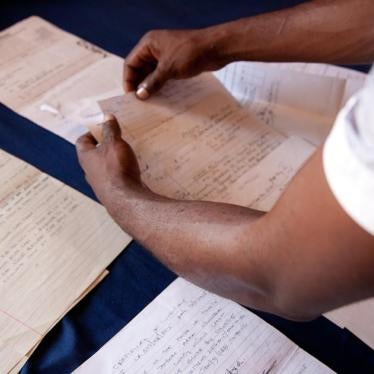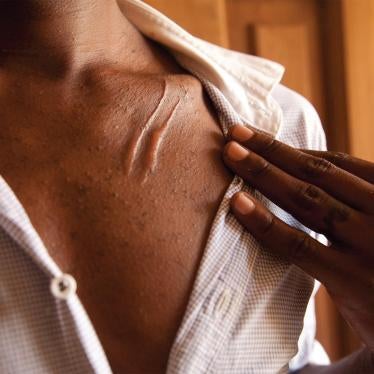(Nairobi) – Kenya’s High Court on May 24, 2019 upheld laws criminalizing homosexual acts between consenting adults, a step backward in the progress Kenya has made toward equality in recent years, Human Rights Watch said today.
The court was addressing a petition filed in 2016 by three Kenyan organizations that work to protect the rights of lesbian, gay, bisexual, and transgender people. The groups said that the criminalization of same-sex conduct under articles 162 and 165 of the penal code violates the rights to equality, non-discrimination, human dignity, security, privacy, and health, all protected under Kenya’s constitution.
“Kenya’s High Court has relegated people in same-sex relationships in Kenya to second-class citizenship, based on the absurd claim that the penal code is not discriminatory,” said Neela Ghoshal, senior LGBT rights researcher at Human Rights Watch. “Rights cannot be trampled upon in the name of social disapproval. The Court of Appeal should revisit this ruling urgently.”
Kenya’s anti-homosexuality laws are a colonial relic, first imposed by British colonizers in 1897. Article 162 punishes “carnal knowledge against the order of nature” with up to 14 years in prison, while article 165 makes “indecent practices between males” liable to up to five years in prison.
The laws are rarely enforced – Human Rights Watch is aware of two prosecutions against four people under article 162 in the last 10 years. But they underpin a broad array of human rights abuses and contribute to a climate of discrimination and violence. Police use the laws as a pretext to harass and extort money or sex from LGBT people, or to deny services to LGBT people who are victims of violence. Kenyan human rights and LGBT organizations report that the laws have been used to justify employment and housing discrimination, to expel or suspend students from schools, to censor artistic expression related to LGBT issues, and to prevent LGBT organizations from registering.
In 2016, Eric Gitari, an activist who was president of the National Gay and Lesbian Human Rights Commission (NGLHRC), filed a petition challenging the laws. Two other organizations, the Gay and Lesbian Coalition of Kenya (GALCK) and the Nyanza, Rift Valley and Western Kenya Network (NYARWEK), along with individual petitioners who had been personally affected by the laws, filed a second petition raising similar arguments. The High Court consolidated the two petitions and referred them to a three-judge bench.
The court today rejected the petitioners’ case that the laws violate constitutional protections, stating that the provisions are not discriminatory because they do not single out LGBT people, and that the petitioners had not proved their rights had been violated under the laws.The court also argued that the constitutional rights to privacy and dignity are not absolute and should be read in the context of article 45 of the constitution, which states that “Every adult has the right to marry a person of the opposite sex.” The petition made no mention of marriage, Human Rights Watch said.
The ruling flies in the face of several other Kenyan court decisions that have upheld LGBT people’s fundamental rights. In 2015, the High Court ruled in favor of NGLHRC in a case involving freedom of assembly and association. The Non-Governmental Organizations Board (NGO Board), a government agency, had refused to register NGLHRC, claiming that it was promoting immorality. The court found that the NGO Board was impermissibly discriminating on the basis of the presumed sexual orientation and gender identity of NGLHRC’s personnel, in violation of constitutional protections around non-discrimination. The Court of Appeal upheld the ruling in March 2019, although the NGO Board has appealed to the Supreme Court.
After police arrested two people and subjected them to forced anal examinations in 2015, the Court of Appeal ruled in 2018 that carrying out these examinations on people charged with consensual homosexual conduct violated the prohibition on torture and cruel, inhuman, and degrading treatment.
On transgender issues too, Kenyan courts have moved the needle forward. In 2014, the High Court ruled in favor of a transgender activist, Audrey Mbugua, on her right to have her school certificate reissued with her female name, and with no gender marker. Another 2014 ruling compelled the NGO Board to register Transgender Education and Advocacy (TEA), a non-governmental organization led by Mbugua.
Kenya’s failure to move forward on decriminalization of same-sex relations violates its obligations under international law, Human Rights Watch said. In its 1994 decision in Toonen v. Australia, the UN Human Rights Committee – the body that interprets the International Covenant on Civil and Political Rights (ICCPR), to which Kenya is a state party – held that laws prohibiting consensual same-sex conduct violate the rights to privacy and non-discrimination.
The Kenyan ruling is particularly disappointing in light of progress elsewhere in Africa and around the world, Human Rights Watch said. In January, Angola issued a revised penal code that no longer punished so-called “vices against nature.” Other African countries that have revoked anti-homosexuality laws through penal code reform in recent years include Seychelles, Mozambique, Sao Tome and Principe, and Lesotho. Botswana’s High Court is scheduled to hear a case in June, on the constitutionality of laws that make same-sex intimacy a crime.
But 33 countries in Africa still have laws on the books that outlaw consensual same-sex relations. One of them, Chad, criminalized same-sex relations for the first time in 2017.
Meanwhile, courts around the world are striking down laws against homosexual conduct, many of them, like Kenya’s, colonial legacies. India decriminalized same-sex relations through a landmark court ruling in 2018, as did Trinidad & Tobago, while Belize’s Supreme Court struck down its sodomy law in 2016. Palau, Nauru, and Northern Cyprus have decriminalized homosexual conduct through legal reform in recent years.
Kenya’s government has adopted an ambivalent stance on LGBT rights. President Uhuru Kenyatta referred to homosexuality as “not acceptable” in a 2018 media interview, but has previously said he would not tolerate anti-LGBT “witch hunts” and other forms of violence. Kenya accepted a recommendation at the UN Human Rights Council in 2015 to adopt legislation prohibiting discrimination on the grounds of sexual orientation and gender identity, consistent with constitutional guarantees of non-discrimination, but no such legislation has been passed.
Activists said they would appeal the May 24 High Court ruling.
“Kenya has missed an opportunity to take a clear stance against discrimination,” said Njeri Gateru, director of the National Gay and Lesbian Human Rights Commission. “I believe justice will eventually prevail in Kenya, as in other parts of the world that have decriminalized same-sex conduct, but in the meantime, ordinary LGBT Kenyans will continue to pay the price for the state’s indifference to inequality.”







